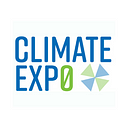Solutions for Aircraft Electrification Leadership (SAEL): Driving net-zero carbon aviation through an open global aircraft electrification technology framework
Sharmila Sumsurooah, University of Nottingham
I enjoy flying. Discovering the natural beauties of different parts of the globe and experiencing the diversity of different cultures make me feel connected as one world. Yet, I am also aware that air transport breathes out millions of tons of pollutants into the atmosphere yearly, which is not good for our dear planet or for humankind. My wish is to fly more sustainably, but I do not see any green aircraft to book my flight on.
Or, not yet at least. As a researcher in the aerospace sector, I know that more than ever before, intensive research and heavy investments are being made in academia and industry to develop technologies to create net-zero carbon aviation. There is an immense will in the aerospace industry worldwide to move towards sustainable aviation.
This is good news that deserves to be communicated and acknowledged. Much research effort is being made to shift from conventional to hybrid/all-electric aircraft, as conveying power through electricity is more efficient compared to using conventional pneumatic or hydraulic systems. Yet, there are many challenges that do not make the hybrid/ all-electric aircraft a sustainably viable solution presently especially for medium to large airplanes. Here are a few, but not all, of the many challenges that have to be tacked to make progress towards cleaner aircraft:
- We need batteries with much higher energy density.
- Electric machines and power electronic systems need to have high reliability to operate in harsh conditions and high altitudes.
- New regulations and standards for electric aircraft need to be developed and established rapidly to keep pace and enable development of novel technologies.
In August 2019, I was invited to make a presentation at the More Electric Aircraft conference in Hamburg on my research project on turbo electric propulsion. After the first day of the conference, around twelve of us attendees met for dinner. From the passionate discussion around the table, one thing was clear: All of us were working in our own spheres to make advancement in our respective fields, but we needed expert information and input from each other to achieve an integrated solution for green aircraft.
There was an “Aha!” moment when we realised that experts from different fields in the aerospace sector, like ourselves, could gather around one table and work together to solve this problem, identify the challenges, develop the potential solutions, and use our collective expert know-how to design and perhaps fly the green aircraft.
We could become collaborators with a shared goal. In the complex landscape that constitutes the aircraft industry, such a collaboration will meet the need for coordination in order to make sure innovations are compatible, that certain problems are not being examined many times over whereas others are not being explored at all, and to ensure that regulatory and safety challenges are being anticipated. That is exactly what we did when we created the Solutions for Aircraft Electrification Leadership (SAEL).
SAEL is now a world-class partnership of engineers and researchers from industry, academia and regulation, with the aim to coordinate and integrate research, innovations and standards to bring sustainable aviation closer and in doing so, address the climate change challenge. The vision of SAEL is aligned with that of the Climate Exp0 and COP26: that of bringing the world together to address climate change– in our case, focusing on air transport.
We set out to work by holding two workshops in 2019 and 2020. During these workshops over 50 world leaders in aerospace, enthusiastic and fully engaged, worked together and defined a unified technology framework. The framework identifies the critical paths to sustainable aviation, and through a traffic light approach identifies the research and regulatory priorities that need to be resolved urgently to make green flight a reality.
We are further developing this technology framework, which will be open access. It will:
- Allow everyone working on sustainable flight to identify at a glance the areas where technology and financial efforts need to flow in order to bring tomorrow’s solutions for greener aviation to today.
- Link the best-in-class research work being undertaken worldwide by experts and researchers across the key aerospace disciplines.
- Ensure funders target the projects that will advance critical required technologies. SAEL will be part of this process looking for funding sources.
- Promote and support small to large businesses develop the much-needed solutions.
Ultimately, this assembled and created know-how will be directed to designing an open-source large passenger hybrid/all-electric airplane, which will be openly available to the aerospace industry to accelerate production of such airplanes in the future.
Working on the development of greener aircraft brings meaning to my work. Imagine what a group of motivated experts from all over the world can achieve by coming together to work on and design the sustainable aircraft! If you are an expert, scientist, policymaker, or businessperson in the aerospace field who believes that we together can make a difference to the way we fly, please connect with us. To fly and be green, why not?
Did you miss Climate Exp0? You can watch the highlight videos from all five days of the conference here. All conference content and sessions will be freely and permanently available on Cambridge Open Engage from mid-June. For those who attended Climate Exp0, you can view all sessions from Climate Exp0 now via the Climate Exp0 homepage, using your conference login.
